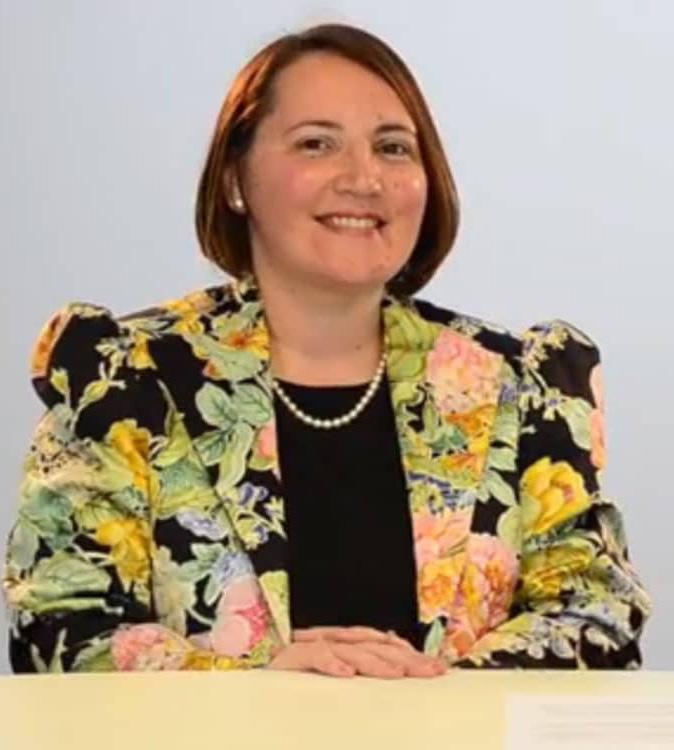
3 minute read
by Prof. Jean Calleja Agius
The Role of the Doctor at this Day and Age
I was very delighted when I was invited by the Malta Medical Students’ Association (MMSA) to write the editorial for this issue of Minima Medicamenta. Twenty-three years ago, in my role as the Medical Education Officer for MMSA, I myself was the Editor of the ‘Murmur’, which at the time was the MMSA’s student magazine, the content of which was more of a lighter nature. MMSA has made giant leaps, and as evidenced by this particular issue, from an early stage, medical students are getting involved in authoring high quality scientific work such as the literature reviews and case reports.
Advertisement
This is of vital importance, because as doctors, our role is not just to diagnose and manage patients, but to inform and educate society. This is in spite of the fact that we live in an age where ‘information’ is available at the click of a button, and yet it has become overwhelmingly delugedby ‘misinformation’ which is packaged in such a way that it may heavily influence the unwary. Medical students must be very well-equipped in order to fullfill their role as future medical doctors in modern society and learn to be unafraid to state facts and help point their patients in the right direction. At the time of writing, society is facing two major health-related issues on a national and international level: domestic violence and the novel coronavirus infection.
There is a significant amount of hidden domestic violence, even on our little tiny rock. Doctors from the Accident and Emergency Department at Mater Dei have recently warned that there are “too many” domestic abuse cases that go under the radar, as the victims are either afraid of the perpetrators or feel helpless in their fight for their rights. As the ones on the frontline, doctors deal with domestic abuse victims on a regular basis. They are victims of all ages, of any gender, coming from all social strata and hailing from all different cultural and racial origin. Apart from medicating the physical injuries, doctors play a crucial role as the point of reference of multidisciplinary management in order to defend the ’voiceless’. We have seen many success stories in the international media how women have been saved from a domestic violence trap by reaching out to all kinds of service workers, even fast food chain employees. Just imagine how much heavier is the responsibility on our shoulders as trusted professionals to help these individuals escape their silent traps. It is therefore our role to be sensitive to these issues and be well-informed in order to be the advocates to influence authorities, stakeholders and lawmakers, in the interest of the most vulnerable in society.
As concern grows over the coronavirus, which was first diagnosed in Hubei province in China, fake news and scams capitalising on people’s fears have been also spreading into what WHO has named an ‘infodemic’. Given that the world is hooked on social media, viral misinformation can worsen any global public health emergency creating damage and hurting people far more than the fatality rate of the disease itself.
While there is no doubt that the social media is a powerful tool in spreading public health news, education and debunking myths, unfortunately the myth-makers tend to outnumber the educators. It is causing waves of racism and xenophobia. Misleading videos are instantly viewed and shared by numerous users, and even after deleting the original post, reactions and responses to video-duets still linger on, emphasizing how difficult it is to kill digital falsehoods (check out the measles vaccine ‘infodemic’ which is still raging despite the original paper having been retracted for ages). As doctors and frontline workers, we have a duty to inform ourselves from authoritative and peer-reviewed scientific sources. We have the obligation to correctly inform and educate both ourselves and the public at large. The damage wreaked by a doctor spewing misinformation on the media is indeed incalculable.
In conclusion, quoting Rudolf Virchow (1821-1902), one of the 19th century’s foremost leaders in medicine and pathology, as well as a public health activist, social reformer and politician: “Medical education does not exist to provide students with a way of making a living, but to ensure the health of the community.”
Prof Jean Calleja Agius MD, FRCOG, FRCPI, MSc Clinical Embryology (Leeds), PhD (London)










